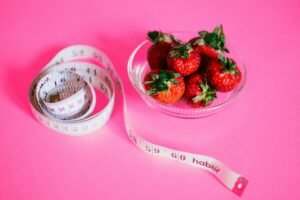Glyphosate Pasta: Should We Worry?
Recently, after the service of a well-known television program, even we Italians, if anyone had a doubt about it, we discovered the bitter truth.
That not only in America, but also in Italy, products contaminated with glyphosate are unfortunately a reality.
What is glyphosate in the first place?
It is a total action herbicide , which is also found in cereals, vegetables and fruit, legumes, as well as in packaged products based on raw materials treated with this herbicide and pesticide.
This is the case, for example, of orange juice or other fruit juices, of which recently in America there is talk of ” juice alarm “.
GLYPHOSATE, WHAT IT IS AND WHAT ARE THE SUSPECTS
This herbicide initially produced exclusively by Monsanto, is now used in crops all over the world, including European and Italian ones.
And although authorities like EFSA let us know that glyphosate is safe as a herbicide and not harmful to human health, for years now, starting with the United States, thousands and thousands of cases have been collected that instead told another story. .
That is, the contamination of products with glyphosate has had a devastating impact on people’s health. So much so that in Italy some time ago the StopGlifosato
campaign was launched , aimed at banning the use of this herbicide in Europe.
Glyphosate, we read from some studies, and from an Airc report, is suspected of being carcinogenic, and of causing serious hormonal problems, acting as an endocrine disruptor. In short, it would have teratogenic effects.
Public opinion thus experiences the contradiction between the judgment of the competent authorities and the amount of studies that are emerging now, in addition to the testimonies of thousands of people, including those who live near the crops that use this pesticide.
PASTA WITH GLYPHOSATE AND MORE: THE PROBLEM IS MORE COMMON
And today we discover, for example, the problem of glyphosate pasta, that is, pasta that comes from contaminated grains.
Since glyphosate is in fact also used in Europe and Italy, it does not matter whether the grains are foreign or local.
Detailed studies then analyzed the various brands of pasta.
And it has been discovered that some decidedly national-popular brands such as Barilla or Divella are sixty percent safe.
To the problem of glyphosate, we add that of traces of other pesticides.
There is thus a risk of exceeding the threshold level of these substances.
The only brands whose glyphosate detection is below the minimum threshold are Voiello pasta, Molisana pasta and 100% Puglia Granoro. The de Cecco pasta, the Rummo pasta and the wholemeal Garofalo are also quite safe.
On the other hand, the pasta of the Lidl and Eurospin brands (sources: Il Salvagente and Grano Salus ) proved to be mediocre (ie at greater risk of contamination ).
However, when talking about glyphosate pasta, you risk underestimating all the other products that have this pesticide and other trace pesticides.
A considerable risk if we consider that, in daily consumption, in addition to eating pasta, we may also consume flours and packaged products, but also vegetables, which have not yet been examined by us.
While in America, where glyphosate has been talked about for the longest time, it is emphasized that many commonly used products are contaminated.
For example , many breakfast cereals, biscuits, crackers, but also natural products such as nuts, fruits, vegetables, and cereals such as wheat, oats and corn.
Glyphosate Pasta: Should We Worry?
Recently, after the service of a well-known television program, even we Italians, if anyone had a doubt about it, we discovered the bitter truth.
That not only in America, but also in Italy, products contaminated with glyphosate are unfortunately a reality.
What is glyphosate in the first place?
It is a total action herbicide , which is also found in cereals, vegetables and fruit, legumes, as well as in packaged products based on raw materials treated with this herbicide and pesticide.
This is the case, for example, of orange juice or other fruit juices, of which recently in America there is talk of ” juice alarm “.
GLYPHOSATE, WHAT IT IS AND WHAT ARE THE SUSPECTS
This herbicide initially produced exclusively by Monsanto, is now used in crops all over the world, including European and Italian ones.
And although authorities like EFSA let us know that glyphosate is safe as a herbicide and not harmful to human health, for years now, starting with the United States, thousands and thousands of cases have been collected that instead told another story. .
That is, the contamination of products with glyphosate has had a devastating impact on people’s health. So much so that in Italy some time ago the StopGlifosato
campaign was launched , aimed at banning the use of this herbicide in Europe.
Glyphosate, we read from some studies, and from an Airc report, is suspected of being carcinogenic, and of causing serious hormonal problems, acting as an endocrine disruptor. In short, it would have teratogenic effects.
Public opinion thus experiences the contradiction between the judgment of the competent authorities and the amount of studies that are emerging now, in addition to the testimonies of thousands of people, including those who live near the crops that use this pesticide.
PASTA WITH GLYPHOSATE AND MORE: THE PROBLEM IS MORE COMMON
And today we discover, for example, the problem of glyphosate pasta, that is, pasta that comes from contaminated grains.
Since glyphosate is in fact also used in Europe and Italy, it does not matter whether the grains are foreign or local.
Detailed studies then analyzed the various brands of pasta.
And it has been discovered that some decidedly national-popular brands such as Barilla or Divella are sixty percent safe.
To the problem of glyphosate, we add that of traces of other pesticides.
There is thus a risk of exceeding the threshold level of these substances.
The only brands whose glyphosate detection is below the minimum threshold are Voiello pasta, Molisana pasta and 100% Puglia Granoro. The de Cecco pasta, the Rummo pasta and the wholemeal Garofalo are also quite safe.
On the other hand, the pasta of the Lidl and Eurospin brands (sources: Il Salvagente and Grano Salus ) proved to be mediocre (ie at greater risk of contamination ).
However, when talking about glyphosate pasta, you risk underestimating all the other products that have this pesticide and other trace pesticides.
A considerable risk if we consider that, in daily consumption, in addition to eating pasta, we may also consume flours and packaged products, but also vegetables, which have not yet been examined by us.
While in America, where glyphosate has been talked about for the longest time, it is emphasized that many commonly used products are contaminated.
For example , many breakfast cereals, biscuits, crackers, but also natural products such as nuts, fruits, vegetables, and cereals such as wheat, oats and corn.



























+ There are no comments
Add yours